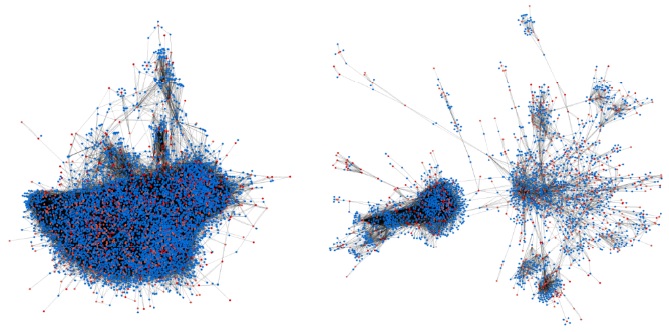Abstract
Dysregulation of transcriptional programs leads to cell malfunctioning and can have an impact in cancer development. Our study aims to characterize global differences between transcriptional regulatory programs of normal and tumor cells of the colon. Gene expression profiles for 98 pairs of normal-tumor samples were obtained using microarrays. Transcriptional networks for both normal and tumor samples were reconstructed using ARACNe algorithm. Alarge loss of transcriptional interactions in the tumor network was observed (81%), which also contained fewer transcription factors (47%) and target genes (60%) than the normal network. Gene silencing was not a main determinant of this loss of regulatory activity, since the average gene expression was essentially conserved. Moreover, a tumor-specific emergent transcriptional regulatory program was identified, with significantly enriched genes related to colorectal cancer pathways. These findings will allow a better comprehension of the transcriptional regulatory programs altered in colon cancer and could be an invaluable methodology to identify potential hubs with a relevant role in the field of cancer diagnosis,prognosis and therapy.
Supplementary Material (Index)
To explore specific transcription factors and their target genes:
Reference:
Cordero D, Solé X, Crous-Bou M, Sanz-Pamplona R, Paré-Brunet L, Guinó E, Olivares D, Berenguer A, Santos C, Biondo S, Salazar R, Moreno V.
Large differences in global transcriptional regulatory programs of normal and tumor colon cells.
BMC Cancer 2014, doi:10.1186/1471-2407-14-708. Published: 24 September 2014.
PMID: 25253512














